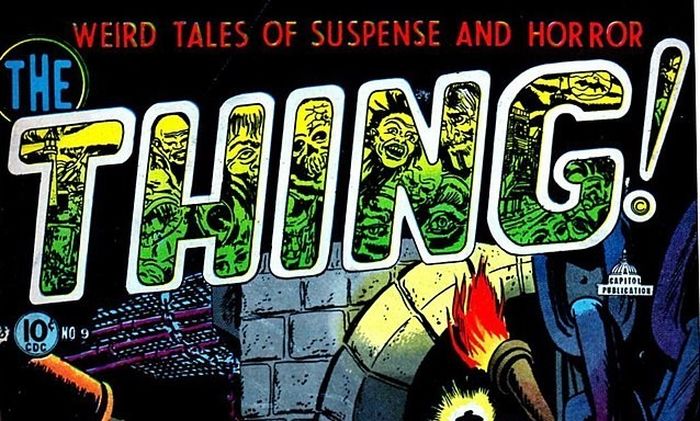Nope: unanswered questions and ambiguous motifs makes this Jordan Peele’s best work to date
Jordan Peele showcases how tragedy is worsened by an over-analytical media circus

It is not often that a film stands over me as profoundly as Jordan Peele’s latest work, Nope, does. Since my initial viewing, not a single day has gone by where I haven’t thought about this wondrously horrifying work. This was the case before I even saw the film. The mysterious advertising, Peele’s reticence to give away any details of the plot, and the repeated shots of characters gazing up into the unknown used throughout the trailers had me intrigued.
Set on a Hollywood ranch used to train horses for film appearances, Nope follows Otis “OJ” Haywood Jr and fame-seeking sister Emerald as they appear haunted by a mysterious object floating across the barren desert skies above. The mock-western theme park next door is owned by former child actor Jupe, whose presence haunts the film as Peele slowly drip-feeds the audience further details of the mysterious stalker hiding behind the clouds. What is that giant, organic form hovering over our protagonists? What is the enigmatic Steven Yeun’s role, Jupe, within this mystery? And, perhaps the most pertinent question of all, why is the film so succinctly entitled Nope?
These are questions that, by and large, are answered during the two-hour runtime. But what makes Peele’s work so tantalising, perhaps more so than in either of his previous films, is the questions that are left unanswered. In this respect, Peele does not patronise his audience; instead, he respects their intelligence, allowing us to come up with our own interpretations of events. However, this is not done to an aggravating extent.
Rest assured, you won’t have to fill in the blanks on huge swathes of plot detail. Instead, Peele strikes the perfect balance in the questions he leaves for his audience, which only furthers the pure terror presented on-screen. An eerily balanced, almost-floating shoe was one of my favourite details. It is not made the centre of our attention during the otherwise disturbing scene in which it appears; rather, it functions as a tantalisingly unexplained detail, leaving us pondering over its significance.
This is by far Peele’s most terrifying work to date. I do not remember the last time I felt such all-consuming fear whilst watching a film in the cinema, but several of the sequences throughout this film left me absolutely breathless. Peele’s previous films, Get Out and Us, whilst certainly excellent works, missed the paralysing sense of dread that overwhelmed me whilst watching Nope. Alongside this compelling fear, however, there is often a light and playful comedic line of dialogue. This works to lessen the tension, yet doesn’t remove any of the suspense, providing the audience with some light respite throughout an otherwise exhilarating experience.
Peele approaches these sensitive subjects through the lens of alien horror
Something that has dominated discussions of Nope are the motifs used: something Peele has, for the most part, rather playfully dodged in recent interviews. Is the film an analysis of the public fascination with mass tragedy? There certainly seems to be a commentary on the obsessive way in which broader society treats such events, only to amplify their severity in the future, as well as the implications of childhood trauma reaching into later life. One of my favourite moments during the film was when the mysterious, masked presence of a TMZ reporter is used to add a further element of real dread to proceedings; the reporter’s arrival was accompanied by a classic, high-pitched horror movie sting. In this way, Peele showcases how tragedy, as well as the events that cause it, is worsened by an over-analytical media circus. Peele approaches these sensitive subjects through the lens of alien horror: a masterful tactic.
Other directors, such as Spielberg in E.T., have also used aliens as a source of hope, in contrast to Ridley Scott, who uses them as a source of unadulterated terror in Alien. In Nope, the threat Peele presents to us is entirely apathetic, existing solely to create havoc. The other-worldly threat in Nope could be compared to the omnipresent shark from Spielberg’s Jaws; Peele’s antagonist is merely a vehicle through which he delivers his finely-spun societal message to the audience, the horror along the way only incidental to the central message.
Nope is yet another masterfully-crafted horror production by Jordan Peele: one that firmly cements his credentials as one of the best horror directors working in cinema today. Reaching new bounds, Nope is arguably the best film of Peele’s thus far and I cannot wait to see which new, horrifying journey he takes us on next.
 Comment / Cambridge’s tourism risks commodifying students18 April 2025
Comment / Cambridge’s tourism risks commodifying students18 April 2025 News / Cambridge student numbers fall amid nationwide decline14 April 2025
News / Cambridge student numbers fall amid nationwide decline14 April 2025 News / Greenwich House occupiers miss deadline to respond to University legal action15 April 2025
News / Greenwich House occupiers miss deadline to respond to University legal action15 April 2025 Comment / The Cambridge workload prioritises quantity over quality 16 April 2025
Comment / The Cambridge workload prioritises quantity over quality 16 April 2025 News / Varsity ChatGPT survey17 April 2025
News / Varsity ChatGPT survey17 April 2025





